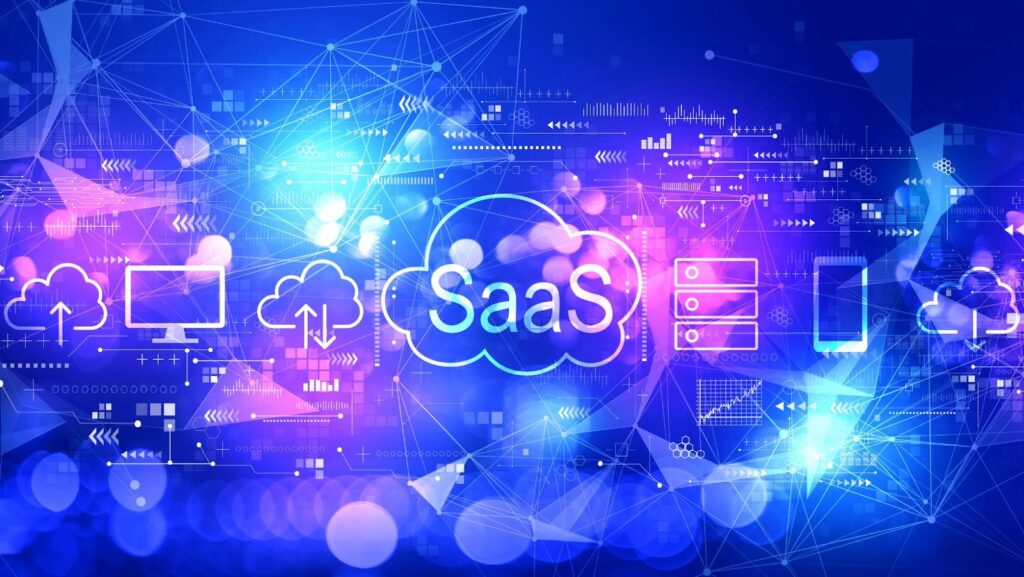In the dynamic and fast-paced world of Software as a Service (SaaS) marketing, staying ahead of the competition requires constant innovation and adaptation. Artificial Intelligence (AI) has emerged as a transformative force, reshaping how businesses approach marketing strategies. AI’s integration into SaaS marketing is not just a trend; it represents a fundamental shift in how companies engage with customers, personalize experiences, and drive growth. This article explores the profound impact of AI on SaaS marketing, examining various aspects from data analysis to customer engagement and forecasting the future of this evolving landscape.
Enhanced Data Analysis and Insights
One of the most significant contributions of AI to SaaS marketing is its ability to process and analyze vast amounts of data quickly and accurately. Traditional marketing relied heavily on manual data analysis, which was time-consuming and prone to errors. AI algorithms, however, can sift through massive datasets, identify patterns, and generate actionable insights with unprecedented speed. For SaaS companies, this means a deeper understanding of customer behavior, preferences, and trends.
Machine learning models, a subset of AI, can predict customer churn, identify high-value leads, and optimize pricing strategies. These insights enable SaaS marketers to make data-driven decisions, tailor their marketing efforts more precisely, and allocate resources more efficiently. By leveraging AI for data analysis, SaaS companies can stay agile and responsive to market changes. Additionally, partnering with a SaaS link building agency can amplify these efforts by driving organic traffic and improving search engine rankings, further enhancing data-driven insights and strategic planning.
Personalized Customer Experiences
Personalization is a key driver of customer satisfaction and loyalty. AI-powered tools allow SaaS marketers to deliver highly personalized experiences at scale. Through techniques like natural language processing (NLP) and machine learning, AI can analyze customer interactions across various touchpoints—emails, social media, website visits, and more—to create detailed customer profiles.
These profiles enable marketers to segment audiences more effectively and craft personalized content that resonates with individual preferences. AI can automate the delivery of personalized messages, product recommendations, and targeted ads, ensuring that customers receive relevant and timely information. This level of personalization fosters stronger customer relationships and increases the likelihood of conversion and retention.
Automation of Marketing Processes
Efficiency is paramount in SaaS marketing, and AI plays a crucial role in automating repetitive and time-consuming tasks. Marketing automation platforms powered by AI can handle tasks such as email marketing, social media posting, lead scoring, and campaign management with minimal human intervention. This automation not only saves time but also ensures consistency and accuracy.
For instance, AI-driven email marketing tools can segment email lists, personalize content, and optimize send times based on historical data and predictive analytics. Chatbots, another AI application, provide instant customer support and can guide prospects through the sales funnel, improving the overall customer experience. By automating these processes, SaaS marketers can focus on strategic planning and creative initiatives, driving more impactful results.
Improved Lead Generation and Scoring
AI has revolutionized lead generation and scoring, making it more precise and effective. Traditional lead generation methods often relied on broad criteria and manual evaluation, leading to missed opportunities and wasted efforts. AI, however, uses advanced algorithms to analyze a wide range of data points, including online behavior, demographic information, and engagement history, to identify and prioritize high-quality leads.
Predictive lead scoring models can assess the likelihood of a lead converting into a paying customer, allowing sales teams to focus their efforts on the most promising prospects. AI-driven tools can also automate the nurturing process, delivering personalized content and offers to leads based on their stage in the buyer’s journey. This targeted approach not only improves conversion rates but also shortens the sales cycle.
Enhanced Customer Engagement and Retention
Engaging and retaining customers is a continuous challenge for SaaS companies. AI offers innovative solutions to enhance customer engagement and retention. By analyzing customer data and behavior, AI can identify at-risk customers and trigger proactive retention strategies, such as personalized offers, timely follow-ups, and tailored support.
AI-powered sentiment analysis tools can monitor customer feedback across various channels, providing real-time insights into customer satisfaction and pain points. This enables SaaS companies to address issues promptly and improve their products and services based on customer feedback. Additionally, AI-driven recommendation engines can suggest relevant features, upgrades, or complementary products, enhancing the overall customer experience and increasing retention rates.
Optimized Pricing Strategies
Pricing is a critical factor in SaaS marketing, and AI helps companies develop optimized pricing strategies based on data-driven insights. AI algorithms can analyze market trends, competitor pricing, customer willingness to pay, and other variables to recommend the most effective pricing models. Dynamic pricing, powered by AI, allows SaaS companies to adjust prices in real-time based on demand, maximizing revenue and competitive advantage.
Furthermore, AI can conduct A/B testing at scale, evaluating the impact of different pricing strategies on customer acquisition and retention. By continuously analyzing and refining pricing models, SaaS companies can ensure they remain competitive while meeting customer expectations and achieving profitability.
Future Trends and Challenges
As AI continues to evolve, its impact on SaaS marketing will only grow stronger. Future trends include the integration of AI with other emerging technologies such as augmented reality (AR), virtual reality (VR), and blockchain. These integrations will open up new avenues for customer engagement and data security.
However, the adoption of AI in SaaS marketing also presents challenges. Privacy concerns and data security are paramount, as AI systems often require access to sensitive customer information. Ensuring compliance with regulations such as GDPR and CCPA is crucial. Additionally, the ethical implications of AI, such as bias in algorithms and transparency in decision-making, need to be addressed.
Conclusion
AI has undeniably transformed SaaS marketing, offering unprecedented capabilities in data analysis, personalization, automation, lead generation, customer engagement, and pricing strategies. By harnessing the power of AI, SaaS companies can enhance their marketing efforts, deliver superior customer experiences, and drive sustainable growth. However, to fully leverage AI’s potential, it is essential to navigate the associated challenges responsibly and ethically. As the technology continues to advance, the SaaS industry must remain agile and innovative, ready to adapt to the evolving landscape of AI-driven marketing.



